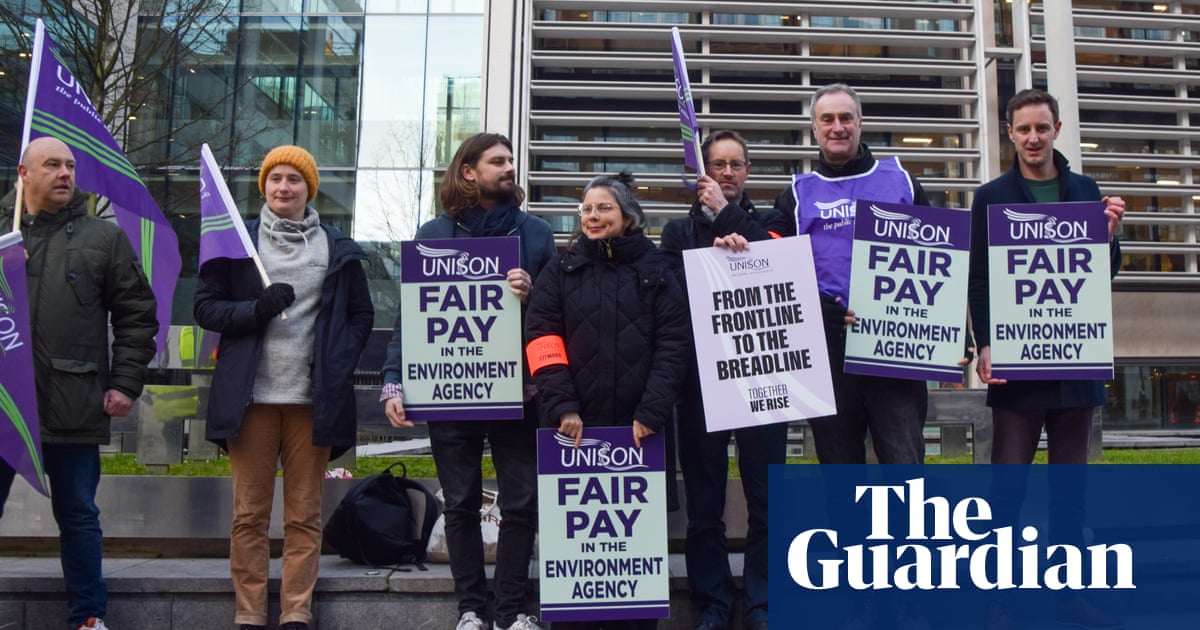
People working for the government’s conservation watchdog are so underpaid that it is threatening the UK’s ability to reach net-zero pledges, a trade union report warns.
Salaries of those working for the government agency Natural England have fallen by 20% in real terms over the last decade, with starting pay thousands of pounds lower than private and charity-sector equivalents, according to the Prospect union’s Natural England 2022 report.
Low pay and rising levels stress means the agency is struggling to fulfil its duties of protecting the natural environment, according to the report.
“Poor pay remains a huge and worsening risk to Natural England and the work it does,” it says. “Comprehensive reform, supported with true additional funding, is urgently required.”
Natural England’s responsibilities include looking after the country’s most important wildlife sites, paying farmers to protect wildlife and advising on planning applications. The government says protecting wildlife is a key part of its environmental policy, but has failed to back that up with action that protects the people looking after the natural environment, the report warns.
Garry Graham, deputy general secretary of Prospect, said: “Cop26 was not just about carbon and power but about protecting biodiversity and the natural environment. If you are not seen to be properly investing in that then it calls into question your commitment to other aspects of your agenda, such as achieving energy efficiency, low-carbon generation and a green jobs revolution.”
Natural England is responsible for the maintenance of many carbon-rich habitats such as peatlands, wetlands and woodlands, which will be a key component of reaching net-zero targets.
“Our argument is that if you don’t properly fund the stewards of our natural environment and you lose skills and capability then it becomes much harder to achieve your overall environmental objectives, including net zero,” said Graham.
It follows a report in 2020 warning that staffing levels had been “cut to the bone” after years of employees being underpaid and overworked. The Department for Environment, Food and Rural Affairs (Defra) – which funds Natural England – has injected more in the last two years but its total budget has fallen by 49% in real terms since 2008-09.
The report recommends a comprehensive reform of pay. It concludes: “Natural England staff deserve better than having to work on the cheap, to deploy their complex skill sets to advise government on the cheap, or to service the Environment Act 2021 on the cheap. This must now change.”
Amelia Womack, deputy leader of the Green party, said: “This is another demonstration of how little value the government really places on tackling the climate and ecological emergency. The highly skilled staff of Natural England, who work hard to safeguard our environment for the benefit of citizens, businesses and agriculture, are being pushed out by low pay.
“With the latest IPCC report warning that the climate crisis is accelerating out of control, the government must prioritise, like never before, the jobs of those who are working on the frontline in the fight against climate change.”
A Natural England spokesperson said the agency was working with trade unions to reform pay for Natural England staff, but that it was constrained by pay rules set out by the Treasury.
“We value our staff hugely and have for some time recognised and acknowledged many of the issues being raised in this report,” they said. “A shrinking budget in the recent past had brought particular difficulties for our teams, but the wellbeing of staff has and continues to be a top priority.
“We have in the last two years secured more resources for nature and the multi-year investment through the recent spending review will mean we can a long way to tackling workloads, alongside our plans to reform the grades and pay band to which staff all are assigned.”












